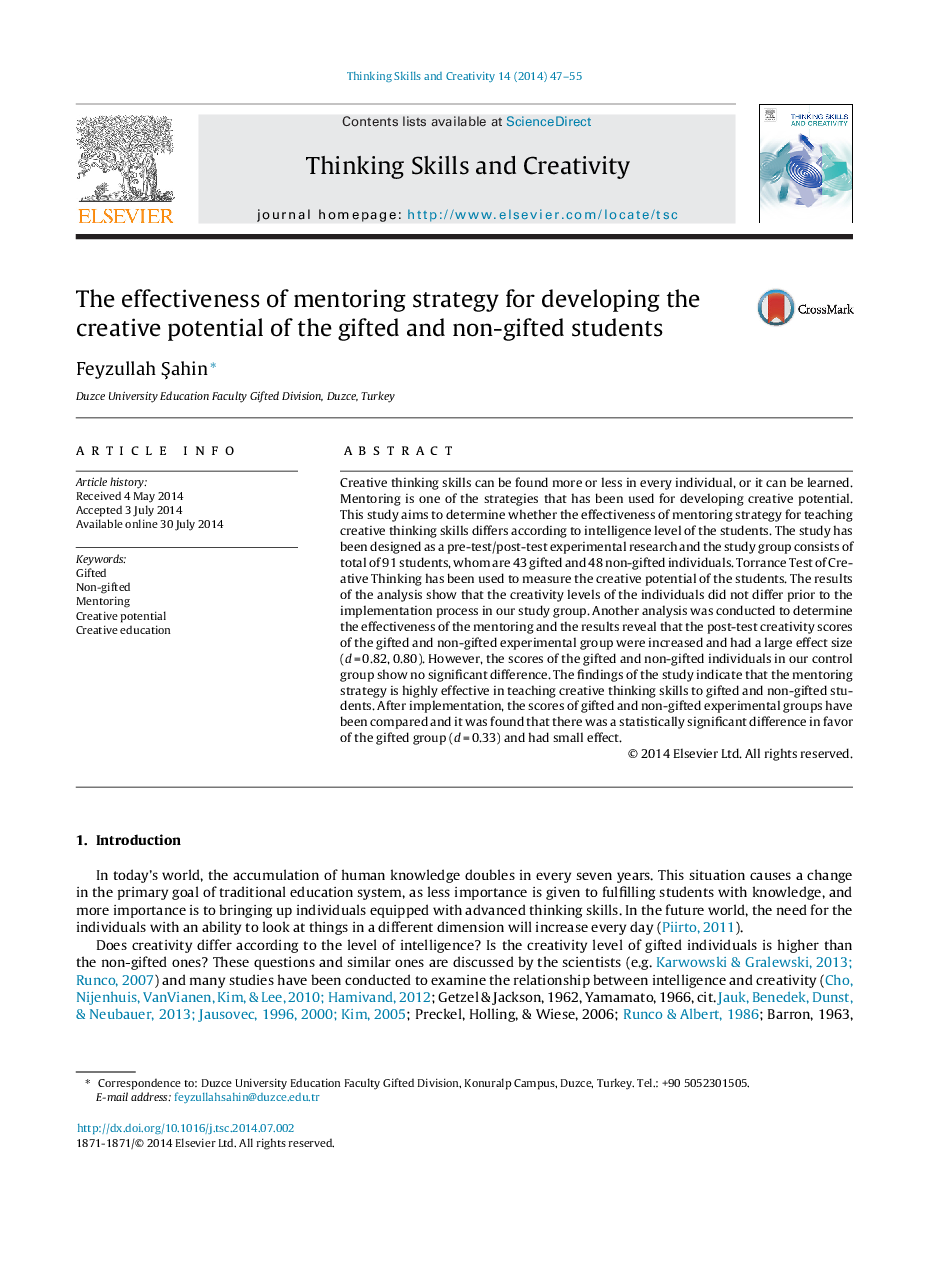| Article ID | Journal | Published Year | Pages | File Type |
|---|---|---|---|---|
| 375548 | Thinking Skills and Creativity | 2014 | 9 Pages |
Creative thinking skills can be found more or less in every individual, or it can be learned. Mentoring is one of the strategies that has been used for developing creative potential. This study aims to determine whether the effectiveness of mentoring strategy for teaching creative thinking skills differs according to intelligence level of the students. The study has been designed as a pre-test/post-test experimental research and the study group consists of total of 91 students, whom are 43 gifted and 48 non-gifted individuals. Torrance Test of Creative Thinking has been used to measure the creative potential of the students. The results of the analysis show that the creativity levels of the individuals did not differ prior to the implementation process in our study group. Another analysis was conducted to determine the effectiveness of the mentoring and the results reveal that the post-test creativity scores of the gifted and non-gifted experimental group were increased and had a large effect size (d = 0.82, 0.80). However, the scores of the gifted and non-gifted individuals in our control group show no significant difference. The findings of the study indicate that the mentoring strategy is highly effective in teaching creative thinking skills to gifted and non-gifted students. After implementation, the scores of gifted and non-gifted experimental groups have been compared and it was found that there was a statistically significant difference in favor of the gifted group (d = 0.33) and had small effect.
